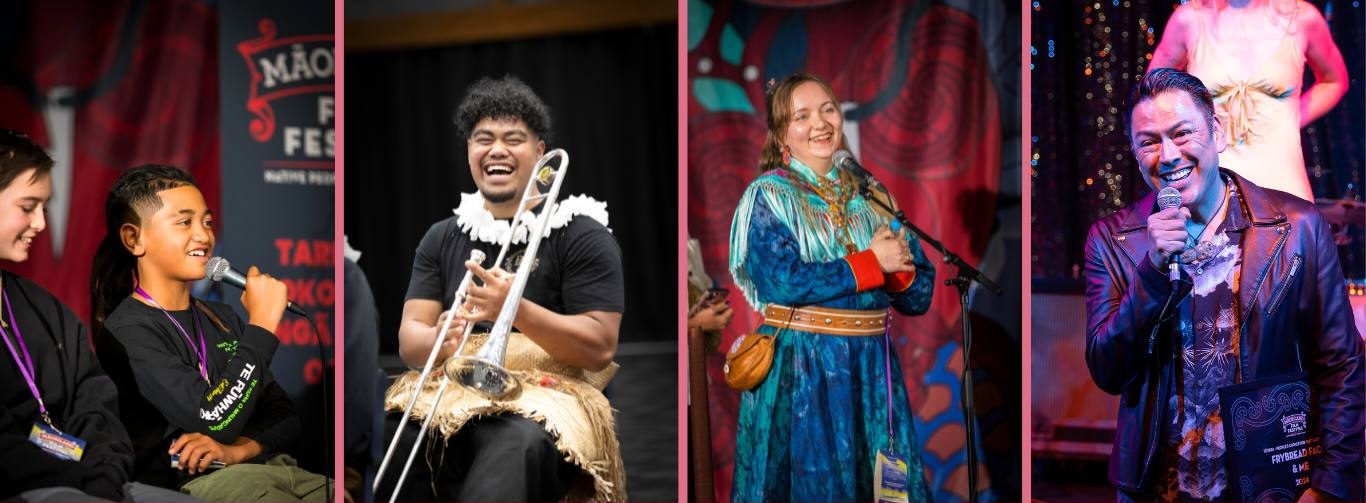
TĀRIA TAKU MOKO MĀORI KI NGĀ KIRIATA O TE WĀ
EMBED MY NATIVE SOUL IN FILM
The 13th Māoriland Film Festival – MFF26 will take place from 24 – 28 March, 2026
Māoriland Film Festival was founded in 2014 to celebrate Indigenous voices and storytelling in film.
The MFF is the world’s largest celebration of Indigenous storytelling with five days of screenings, interactive installation and art exhibitions, industry events and more.
We are committed to nurturing talent and supporting genuine connections for everyone who participates in the festival.
Māoriland Film Festival and the Māoriland Hub is based in Ōtaki, Aotearoa. Both are owned by the Māoriland Charitable Trust (NZ Charities Commission: CC53677)
Submissions for MFF2026 are now closed
Thank you for your support, see you in March!

Rules and Terms
Māoriland exists to uplift the perspective and stories of Indigenous peoples.
Māoriland considers all film types, music videos, interactive media, installations and games.
Toi Matarau Gallery also considers Indigenous art – contact toi@maorilandfilm.co.nz for more information.
Eligibility:
Māoriland considers film, video, digital and interactive media work and artwork (all mediums) made by Indigenous creatives.
To be eligible for your work to be presented or displayed by Māoriland, an Indigenous creative must be credited in a key role such as director, producer or screenwriter. Artworks must be created by an Indigenous individual.
The Indigenous creative must self-identify with and be recognised as an Indigenous person. Indigenous peoples are also known as Tangata Whenua, Aboriginal, Native, First Peoples or Tribal Peoples who belong to; or who have had an uninterrupted relationship with their land. This is distinct from those people who have arrived from another place to live in a country. The festival cannot advise an individual if they are Indigenous or not.
While a key creative involved in the project must be Indigenous, the issue or content of the film may be non-Indigenous. This recognises the diverse experiences, identities and perspectives of Indigenous people(s), worldwide.
Where the eligibility of a submitter is unclear, Māoriland may follow up with the submitter to clarify eligibility, or the work will be deemed to be ineligible.
Completion Date:
Programmers will prioritise films completed after March 2024, but films released earlier are also welcome for submission.
Screening Status:
Priority is given to films that have not screened widely in Aotearoa. Where a film has already screened or is available online, consideration will be given to the audience experience at the festival. When submitting your film, please advise whether filmmakers are planning to attend the festival.
Māoriland prioritises work that:
- Innovatively presents unique and new Indigenous perspectives
- Upholds the mana and inspiration of our storytellers – guided by our elders and taught by our children.
- That respects our audience – Māoriland is rooted in the traditions and language of the hapu and iwi of Ōtaki. It is our honour to extend manaakitanga to all who present their work and experience those presented within Māoriland.
- Provides a portal to the Indigenous world for ALL peoples.
- Relevance of work in regards to emerging themes and issues that shape our wider Indigenous experience.
Requirements for submitters:
- All submissions must be complete to be considered for selection. If your work will not be ready for the deadline and you wish it to be considered for this year’s Festival, please contact festival@maorilandfilm.co.nz
- All non-English language films must have English or Māori subtitles for final viewing; Indigenous languages may be unsubtitled if the film’s overarching message is clear.
- Read the submission instructions carefully before submitting.
- Incomplete Submission Forms will not be processed.
- Preview screeners and exhibition masters must have no commercial blacks or broadcaster promos.
- The deadline for film festival submissions is October 24, 2025. Late submissions will be considered until November 21, 2025. Please be aware that programming commences in November. We are unable to consider submissions after the late submission deadline.
Submission Categories
- Māoriland Film Festival (general screening programme)
- Māoriland Rangatahi Film Festival (youth-targeted screening programme)
- M.A.T.C.H (creative technology exhibition – VR, gaming & new technology)
- Installations & Light Artworks
During the festival Toi Matarau gallery presents its annual exhibition of Māori & Indigenous art. For inclusion in this programme please contact Toi Matarau directly – toi@maorilandfilm.co.nz
Māoriland Film Festival
Māoriland’s main theatrical programme accepts the following works by Indigenous creatives;
- Feature Drama
- Feature Documentary
- Short Drama
- Short Documentary
- Music Videos
- Experimental Films
- Animated Films
Māoriland Rangatahi Film Festival
The Māoriland Rangatahi Film Festival is Māoriland’s programme for young people. The films for this programme are selected by Ngā Pakiaka – a collective of rangatahi filmmakers aged 16-24.
Films may be programmed in both the Māoriland Film Festival and Māoriland Film Festival programmes. This programme prefers films for a general audience.
- Feature Drama
- Feature Documentary
- Short Drama
- Short Documentary
- Animated Films
M.A.T.C.H
Māoriland Tech Creative Hub
During MFF, M.A.T.C.H presents an exhibition of creative technology including VR, games & innovative Indigenous technologies.
Fees
Submissions to Māoriland Film Festival are free.
Late submissions will incur a fee of $25NZD.
Māoriland Film Festival is a non-profit organisation. Year-round we provide a range of activities supporting Indigenous creatives working across a range of mediums. Fees from late festival submissions support the cost of programming and go back into the film festival.
Please note:
Māoriland Film Festival will not accept physical submissions.
Participants will be notified by email of the selection results by January 30, 2026.
If selected, artist/screening fees are issued to the Indigenous creative as indicated on the Submission Form, or to a recognised distribution company. Awards will be given to the Indigenous creative.
If selected for the festival, exhibition copies must be sent in by February 21, 2026.
Programmers may consider a limited number of works at their discretion where work has been created with genuine and mutual participation from an Indigenous person or group of peoples. References and further background will be requested for works submitted under this category.
For any queries regarding submissions, please email festival@maorilandfilm.co.nz
NGĀ POU O TE WHARE
Hou mai koe ki roto i te whare kōrero o Māoriland. Ko tōna tāhuhu ko te iwi, ko te poutāhu ko te mana o te kupu, ko te poutuarongo ko te ira tangata. Kei waenga ko te poutokomanawa o te aroha noa. Ka mutu, ko ngā pou koko ka titi iho ki te whenua ko ēnei:
We bid you entry into our house of stories. The ridgepole is the people, the front post is the authority of the word, the rear post is the essence of our humanity. Between them, we find the support pillar of love. The posts that anchor the corners to the land are these:
CELEBRATION
Māoriland celebrates the rise of Indigenous cinema. It invites filmmakers from around the world to share their compelling big screen stories with us, and with each other.
INSPIRATION
Māoriland upholds the mana and inspiration of our storytellers. We are guided by our elders, and taught by our children. The festival assists our community to expand their perspectives and to connect with those from other cultures.
RESPECT
Māoriland is rooted in the traditions and language of the hapū and iwi of Ōtaki. It is our honour to extend manaakitanga to the many visitors to the festival.
INCLUSION
Māoriland provides a portal to the Indigenous world for ALL people. It assists social cohesion, a sense of pride, and the informed well- being of our community.
